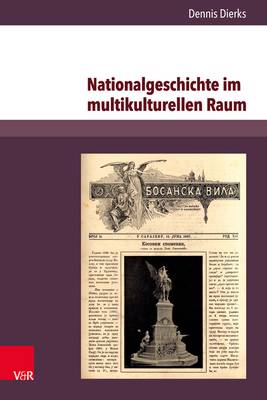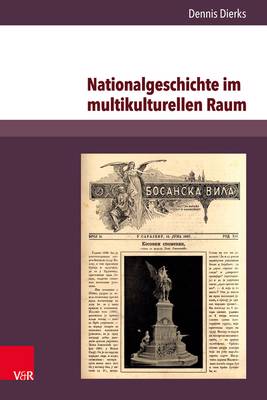
- Afhalen na 1 uur in een winkel met voorraad
- Gratis thuislevering in België vanaf € 30
- Ruim aanbod met 7 miljoen producten
- Afhalen na 1 uur in een winkel met voorraad
- Gratis thuislevering in België vanaf € 30
- Ruim aanbod met 7 miljoen producten
Nationalgeschichte Im Multikulturellen Raum
Serbische Erinnerungskultur Und Konkurrierende Geschichtsentwurfe Im Habsburgischen Bosnien-Herzegowina 1878-1914
Dennis Dierks
€ 117,45
+ 234 punten
Omschrijving
Nation-building was the core political project of the bourgeois 19th century. It went along with the rise of national history, both as a new discipline and genre. Its general task was to trace back the origins of the imagined communities deeply into the past, and by doing so to legitimize the political claim of people and territory. National history produced an inventory of images, which became the basis for political discourse. But if constructed this way - how did national history adapt to an environment that was thoroughly marked by multiculturality and plurality of memories? The study investigates this issue, focusing on Habsburg Bosnia-Herzegovina and specifically on the bourgeois remembrance culture of the Bosnian Serbs.
Specificaties
Betrokkenen
- Auteur(s):
- Uitgeverij:
Inhoud
- Aantal bladzijden:
- 426
- Taal:
- Duits
- Reeks:
Eigenschappen
- Productcode (EAN):
- 9783847107811
- Verschijningsdatum:
- 15/07/2024
- Uitvoering:
- Hardcover
- Formaat:
- Genaaid
- Afmetingen:
- 162 mm x 234 mm
- Gewicht:
- 725 g

Alleen bij Standaard Boekhandel
+ 234 punten op je klantenkaart van Standaard Boekhandel
Beoordelingen
We publiceren alleen reviews die voldoen aan de voorwaarden voor reviews. Bekijk onze voorwaarden voor reviews.










